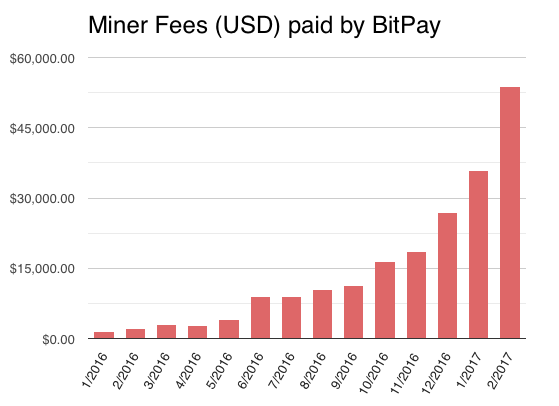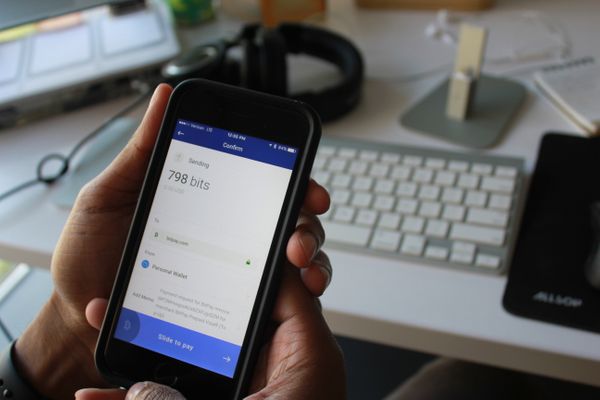2017 has been an exciting year for bitcoin. Demand for secure bitcoin transactions is at an all-time high, and this is an encouraging sign for BitPay and for Bitcoin as a technology.
However, the increase in demand for Bitcoin transactions is also raising the price – called a miner fee – of making a transaction on the Bitcoin blockchain. As we showed in our recent article on rising bitcoin miner fees, the cost of processing received bitcoin payments is also rising.

That's why today we're announcing a change to how network costs are included in BitPay invoices.
What Happens After You Send a Bitcoin Payment
When you make a bitcoin transaction, you are sending funds to a bitcoin wallet address controlled by another person (or in our case, BitPay). What the payment recipient receives and then transfers away from the receiving bitcoin address is called an Unspent Transaction Output (UTXO). This is the unit of bitcoin which can actually be used in another bitcoin transaction.
The miner fees paid to combine and sweep UTXO's from BitPay's receiving addresses are a major part of BitPay's increased network costs, as reflected in the chart earlier in this post. This cost is not unique to using BitPay – any business or person accepting on-chain bitcoin payments will incur the expense of consolidating UTXOs from each payment they receive.
Remember that this UTXO consolidation cost is not the same as the miner fee included with your initial payment to a bitcoin address. Your own miner fee is important in determining the confirmation time for your payment, which is a function of the Bitcoin network (and not something which BitPay controls).
What's Changing?
Until now BitPay has covered the network costs for combining and sweeping UTXOs from BitPay invoice payments. In order for us to continue processing secure, on-chain bitcoin payments without incurring losses as UTXO consolidation costs increase, as of March 23rd we will now be automatically adding this network cost to the total cost of paying a BitPay invoice.
What Does This Mean for BitPay Merchants and Purchasers?
Our merchants' fees and pricing will not be affected by this change. Businesses using BitPay to accept payments depend on stable, predictable revenue and costs for each transaction we process for them, so we are not adding the (often-variable) network costs onto their current fee costs.
For purchasers paying a BitPay invoice, the automatically-calculated network cost (based on current network fee estimates) will be shown as a part of the total amount to be paid. If the network cost is higher than the purchaser is willing to pay, the purchaser can allow the invoice to expire without paying it.
This network cost will not have a significant effect on the majority of payments made through BitPay. However, we realize that for many users, this network cost may make smaller payments uneconomical. The Bitcoin network's growth and its growth constraints are forcing innovation around this problem, particularly here at BitPay. We are working diligently to develop new ways to reduce this expense and make it possible to send faster, simpler, and more affordable bitcoin payments.
How Bitcoin Users Can Minimize Network Costs
If you're concerned about additional network costs on your BitPay payments, we strongly recommend making bitcoin purchases in larger increments to offset the cost across a larger payment value. Bitcoin shines in providing fast settlement times and affordable transfer costs for high-value payments, and we hope bitcoin users will take advantage of these strengths.
Any additional payments you have to make to the BitPay invoice will also be charged the network cost. To avoid paying the network cost twice, be sure to pay the exact BTC amount requested on the BitPay invoice. A good way to ensure that you do not overpay or underpay a BitPay invoice is to scan the QR code or pay with a payment-protocol compatible wallet like the BitPay wallet app.
